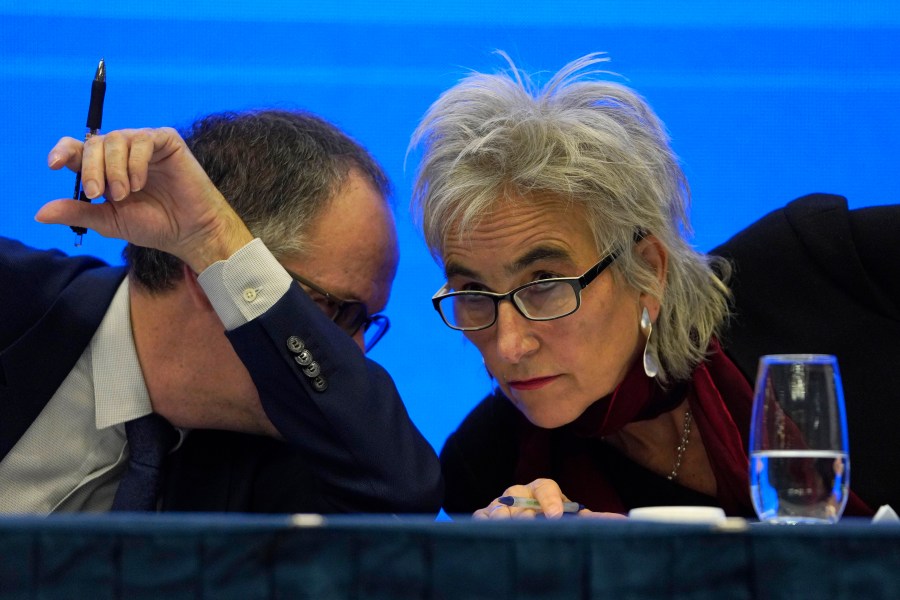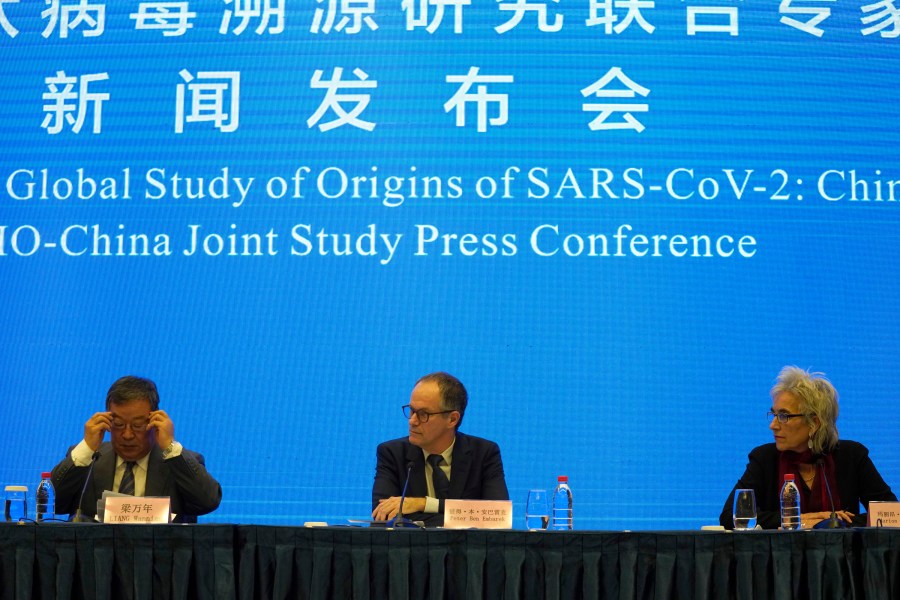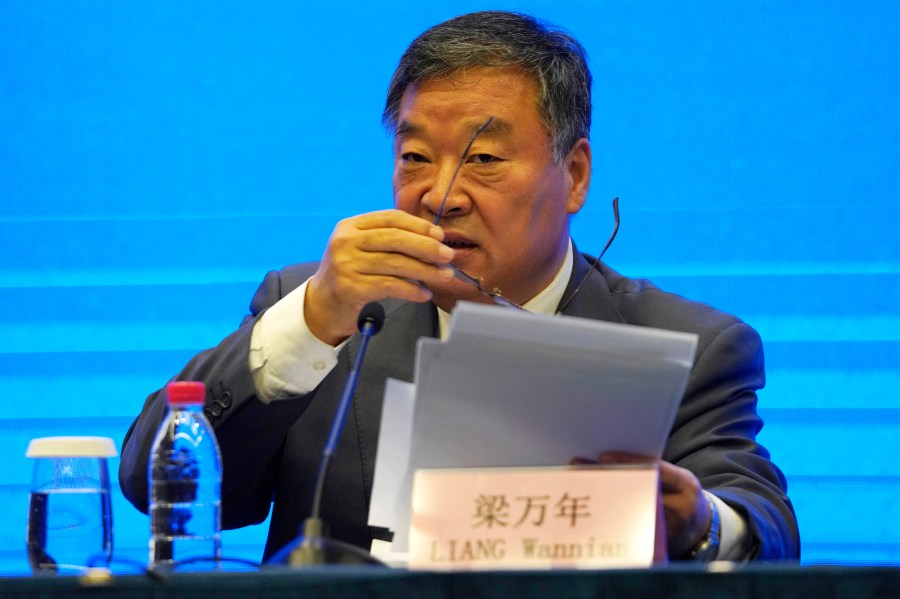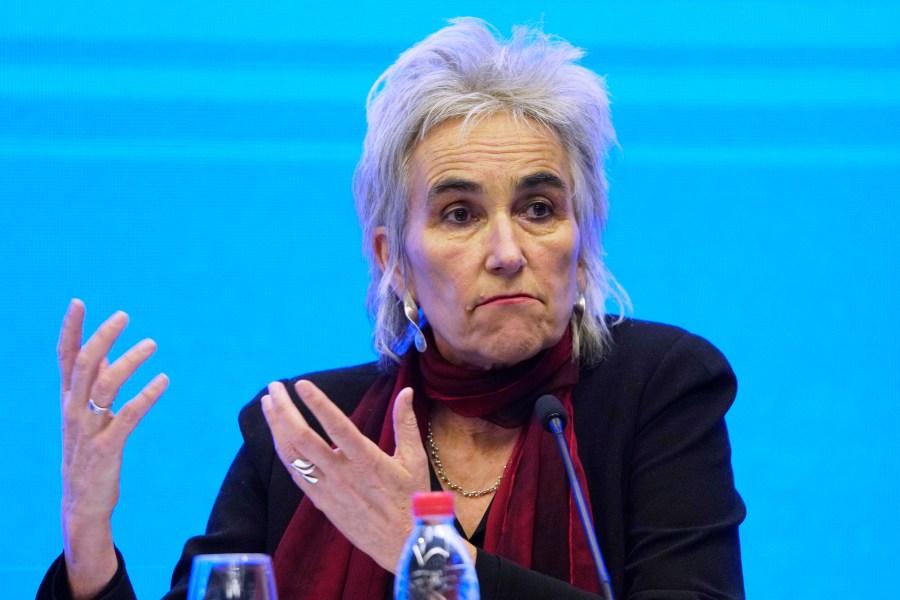WUHAN, China (NewsNation Now) — The novel coronavirus is unlikely to have leaked from a Chinese lab and is more likely to have jumped to humans from an animal, according to a World Health Organization expert.
Members of a WHO-led team looking for clues about the origins of COVID-19 held a briefing Tuesday after nearly a month of meetings and site visits in the central Chinese city of Wuhan, where the disease was first identified. The first cases were discovered in the city in December 2019.
WHO food safety and animal diseases expert Peter Ben Embarek made the assessment as the group wrapped up the visit.
“Our initial findings suggest that the introduction through an intermediary host species is the most likely pathway and one that will require more studies and more specific, targeted research,” Embarek said.
“However, the findings suggest that the laboratory incidents hypothesis is extremely unlikely to explain the introduction of the virus to the human population” and will not be a suggested as an avenue of future study, added Embarek.
The Wuhan Institute of Virology has collected extensive virus samples, leading to allegations that it may have caused the original outbreak by leaking the virus into the surrounding community. China has strongly rejected that possibility and has promoted other theories that the virus may have originated elsewhere. The team is considering several theories for how the disease first ended up in humans, leading to a pandemic that has now killed more than 2.3 million people worldwide.
Transmission through the trade in frozen products was also a likely possibility, according to Embarek.
The WHO team arrived in Wuhan on Jan. 14 and includes experts from 10 nations. After two weeks of working by video conference during quarantine, they visited key sites — hospitals, research institutes, a traditional market tied to the outbreak and other sites on their visit.
The team’s mission is intended to be an initial step delving into the origins of the virus, which is believed to have originated in bats before being passed to humans through another species of wild animal, such as a pangolin or bamboo rat, which is considered an exotic delicacy by some in China.
Marion Koopmans, a Dutch virologist on the team, said that some animals at the Huanan Seafood Market, the site of an early cluster of cases in late 2019, were susceptible or suspected to be susceptible to the virus, including rabbits and pangolin. And some could be traced to farms or traders in regions that are home to the bats that carry the closest related virus to the one that causes COVID-19.
Koopmans said the next step would be to look more closely at farms.
Liang Wannian, the head of the Chinese side of experts involved in the investigation, said the virus also appeared to have been spreading in other parts of the city than the market, so it remains possible that the virus originated elsewhere.
The team found no evidence that the disease was spreading widely any earlier than the initial outbreak in the second half of December 2019.
“We haven’t been able to fully do the research, but there is no indication there were clusters before what we saw happen in the later part of December in Wuhan,” Liang said.
Members of the team have sought to rein in expectations about the mission, with zoologist Peter Daszak telling Reuters last week that one of their aims was to “identify the next steps to fill in the gaps.”
Another team member, infectious disease expert Dominic Dwyer, said it would probably take years to fully understand the origins of COVID-19.
The visit by the WHO team took months to negotiate after China only agreed to it amid substantial international pressure at the World Health Assembly meeting last May, and Beijing has continued to deny calls for a strictly independent investigation. Chinese authorities have kept a tight hold on information about the possible causes of the pandemic.
The United States said China needed to be more open when it comes to sharing data and samples as well as allowing access to patients, medical staff and lab workers. Beijing subsequently accused Washington of politicizing a scientific mission.
Daszak told The Associated Press late last week that they enjoyed a greater level of openness than they had anticipated, and that they were granted full access to all sites and personnel they requested.
While China has weathered some localized resurgences of infection since getting the outbreak under control last year, life in Wuhan itself has largely returned to normal.
The Associated Press and Reuters contributed to this report: Reporting by Emily Wang Fujiyama/AP and Josh Horwitz/Reuters.





